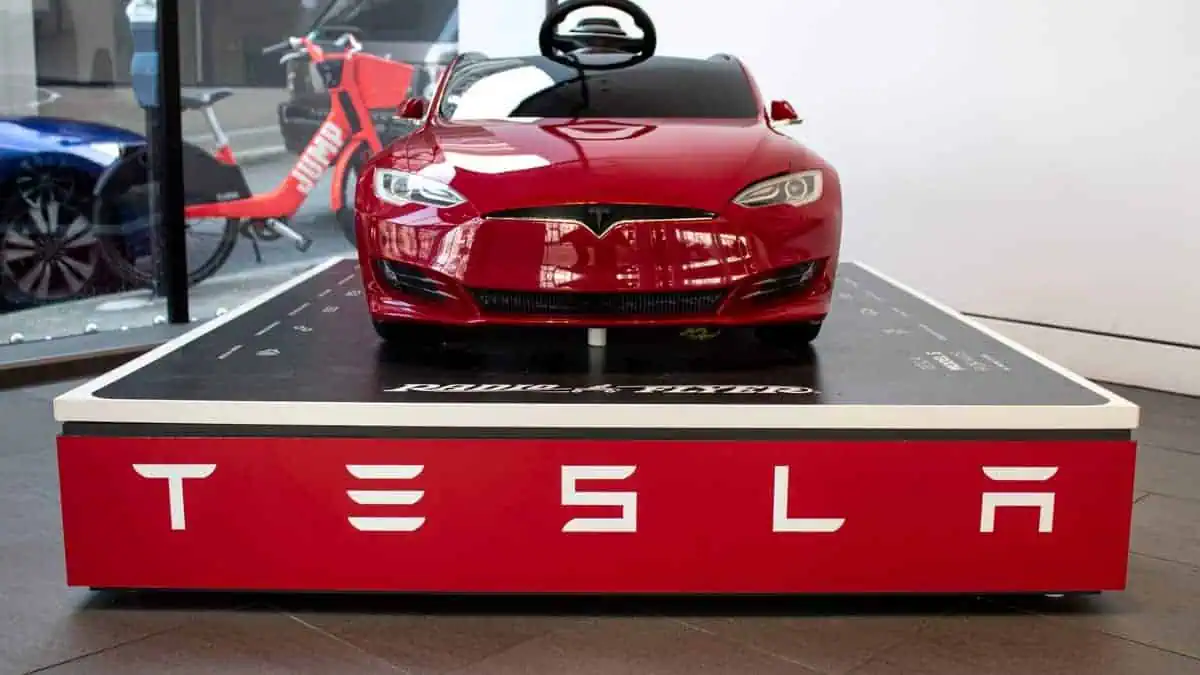Leading American automaker Tesla celebrated its 20th anniversary on Saturday. Now, the industry cannot help commemorating the pivotal role played by its 2010 partnership with Japanese legacy automaker Toyota in propelling its prominence in the electric vehicle industry.
The Tesla-Toyota partnership ended a few years later since the announcement. Nonetheless, it aided the Musk-led company in acquiring its first-ever car factory and gained valuable mass production knowledge.
In a surprising turn of events after 13 years, Toyota is now turning to Tesla to catch up in the highly competitive EV market. It has now acknowledged the latter’s market leadership, seeking to learn from the same company that once looked up to the Japanese automaker.
“It’s finally come to the point for Toyota to learn from Tesla. It was a shock. But as things stood, they wouldn’t have been able to lower EV prices sufficiently. Toyota reached the point where they needed to change production methods.”
Toyota production executive
Beginning of Tesla’s dominance
The 2010 tie-up provided Tesla with a crucial boost, securing $50 million from Toyota for a 3% stake in the company. Apart from that, Tesla was able to acquire a portion of an auto factory from the NUMMI joint venture of Toyota and General Motors for $42 million.
This acquisition proved to be a “stroke of luck for Tesla” as the fully equipped factory required minimal additional spending and provided the American brand with the production capabilities it lacked at the time.
It gave Tesla the necessary infrastructure to ramp up production of its Model S, its first electric car that was internally developed and produced.
On the other hand, the partnership did not yield substantial returns for Toyota apart from being able to sell the California factory. Consequently, the Japanese automaker sold all of its stake in Tesla by the latter part of 2016.
Thereafter, Tesla revolutionized car production methods using innovative megacasting technology, where the car body consists of only two pieces. This innovation resulted in a significant reduction in per-vehicle costs.
For context, the Musk-led automaker first introduced the megacasting tech for the Tesla Model Y in 2020 and across its lineup, inspiring Chinese EV startups to follow suit.
13 years later: Toyota turns to Tesla for manufacturing expertise as EV market evolves
Although initially hesitant, Toyota has now recognized the value of learning from Tesla’s manufacturing expertise.
As the executive asserted, Toyota recognized the need to change its production methods and learn from Tesla to effectively lower the prices of its electric vehicles.
The Japanese brand announced its new gigacasting technology in mid-June, a production strategy it got from Tesla. It will use aluminum casts to produce large modules, possibly for Toyota’s next-gen EV in 2026.
“The Toyota plan that I see is very similar to the Tesla production plan, and that is good because, currently, that’s the best in the marketplace. Toyota needs to also look outside for contrary points of view on how to run the company.”
Sandy Munro, Munro & Associates CEO
In hindsight, Toyota had initially maintained a distance from this production technique due to concerns about reducing supplier orders and the impact on their vertically integrated supply chains. However, realizing Tesla’s position as the market leader in EVs, Toyota eventually conceded.
“Tesla is the market leader of EVs. We should learn from them. At the time, no one could have imagined that Tesla would become what it is now.”
Senior Toyota executive
Tesla faces challenges as it transitions into an established corporation
Tesla’s current dominance in the EV market can be attributed to its ability to recognize weaknesses in the traditional auto industry and challenge conventional norms.
The company directly sells its cars through an online platform, bypassing traditional dealership networks. This strategy allows for lower prices and reduces costs for the manufacturer.
Additionally, Tesla’s approach to production differs from Toyota’s kaizen philosophy of continuous improvement. Tesla reassesses and redesigns production methods from scratch with each new factory, aiming for a 50% cost reduction.
However, Tesla now faces challenges as it transitions into an established corporation. With 120,000 employees and the capacity to produce 2 million vehicles annually, the company must navigate the complexities that come with its rapid growth.
The novelty and appeal of the Tesla brand may also be waning, as evidenced by a 20% decline in the price of used Model 3 vehicles in the US within six months.
See Also:
- Toyota’s brand loyalty slips amidst growing influence of Tesla
- Tesla clears inventory and dominates the Australian market against Toyota as EV enthusiasm grows
- Toyota faces “Tesla Shock” as Model Y outsells Corolla, prompting adaptation efforts
- Toyota crumbles Tesla Model Y, saying it’s a “work of art”
- Tesla to replace Toyota as highest selling car brand in California
Takeaway
All that said, it is unsurprising that the auto industry now sees Tesla not only as a leader but also as an inspiration in EV technology.
Beyond its production prowess, Tesla has managed to build a brand and a community that transcends the traditional automotive sphere.
In fact, it has become synonymous with innovation, sustainability, and cutting-edge technology. This brand loyalty and vibrant fanbase have propelled Tesla to new heights, with customers often pre-ordering new models without even seeing them in person.
As a result of Tesla’s success and influence, other automakers have been forced to reevaluate their strategies and accelerate their efforts in the EV space.
Happy 20th anniversary, Tesla!






